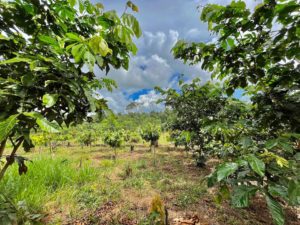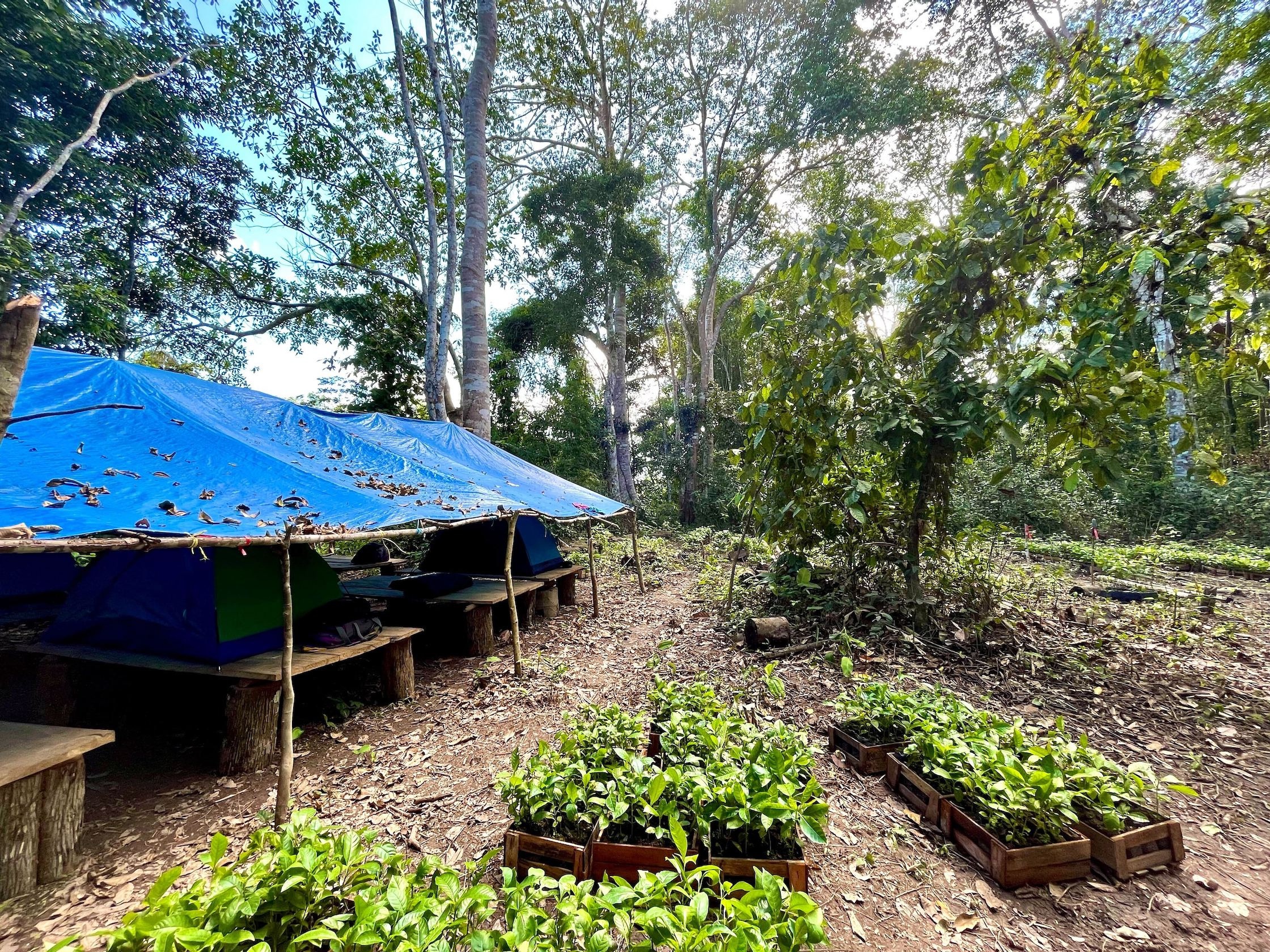When the COVID-19 pandemic hit in early 2020, the world came to a standstill as countries grappled with trying to slow the spread of an unknown disease. Deep in the Amazon, seven communities involved in the Nii Kaniti REDD+ project, already situated in a remote part of Peru, became even more isolated, with entry and exit blocked to safeguard well-being.
At the start of the pandemic, the project’s implementing partner, the local Peruvian NGO AIDER, agreed to post a small team from its headquarters to one of the seven communities to ensure project continuity and momentum. Of particular concern, was protecting agricultural activities and ensuring farmers had adequate support. Just before the lockdowns began, AIDER staff travelled to the community of Pueblo Nuevo where they lived for three months during the height of the spring 2020 pandemic.
 Pueblo Nuevo is home to around 200 people and consists of a vast range of integrated agroforestry plots with a combination of sustainable timber plantations and fruit-bearing vegetation. It was therefore of particular importance for AIDER staff to support this community, which had been working intensely on developing sustainable agricultural activities when the pandemic hit.
Pueblo Nuevo is home to around 200 people and consists of a vast range of integrated agroforestry plots with a combination of sustainable timber plantations and fruit-bearing vegetation. It was therefore of particular importance for AIDER staff to support this community, which had been working intensely on developing sustainable agricultural activities when the pandemic hit.
Pre-covid, seedlings used by farmers at Pueblo Nuevo and surrounding communities were transported from external nurseries near Pucallpa and beyond, via an almost 7-hour journey in both cars and boats, which carried an extra burden of transport and fuel costs. The seedlings, primarily shihuahuaco and capirona tree species as well as cacao, papaya, and plantain, would then be distributed to farmers by AIDER to be planted and grown through agroforestry systems. However, after entry and exit to the communities were barred to reduce the risk of infections, AIDER and local farmers had to devise a new way to nurture seedlings themselves. As part of this, a new nursery was developed in Pueblo Nuevo and new jobs created, with women (previously involved solely in handicrafts) trained in how to plant, grow and culture seedlings themselves to remove the import requirement. In addition, wifi installed in the community during the pandemic helped to put processes in place and provide vital information to keep the nursery and agricultural plots running. This also allowed the community to remain in touch with the wider AIDER team over resources and equipment.
Two years on, Pueblo Nuevo women now have the knowledge and tools to help support the systems that their community relies upon, and are earning additional incomes as well. Today, there is a fully operational nursery at Pueblo Nuevo and the full process of seed to harvest can be done on-site – a huge step in establishing the self-sufficiency of a community committed to conserving this vital forest landscape.
Contact us to learn more about how your business can support the Nii Kaniti project as part of a high-integrity pathway to net zero.
